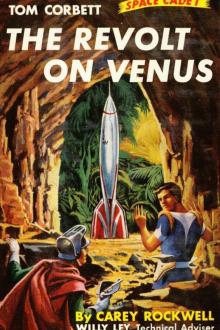Hypatia — or New Foes with an Old Face by Charles Kingsley (e book reader TXT) 📗

- Author: Charles Kingsley
Book online «Hypatia — or New Foes with an Old Face by Charles Kingsley (e book reader TXT) 📗». Author Charles Kingsley
‘Spotless as the’—blessed Virgin, Philammon was going to say—but checked himself. There were sad recollections about the words.
Wulf sat silent for a few minutes, while Philammon’s thoughts reverted at once to the new purpose for which alone life seemed worth having.... To find his sister! That one thought had in a few hours changed and matured the boy into the man. Hitherto he had been only the leaf before the wind, the puppet of every new impression; but now circumstance, which had been leading him along in such soft fetters for many a month, was become his deadly foe; and all his energy and cunning, all his little knowledge of man and of society, rose up sturdily and shrewdly to fight in this new cause. Wulf was now no longer a phenomenon to be wondered at, but an instrument to be used. The broken hints which he had just given of discontent with Pelagia’s presence inspired the boy with sudden hope, and cautiously he began to hint at the existence of persons who would be glad to remove her. Wulf caught at the notion, and replied to it with searching questions, till Philammon, finding plain speaking the better part of cunning, told him openly the whole events of the morning, and the mystery which Arsenius had half revealed, and then shuddered with mingled joy and horror, as Wulf, after ruminating over the matter for a weary five minutes, made answer—
‘And what if Pelagia herself were your sister?’
Philammon was bursting forth in some passionate answer, when the old man stopped him and went on slowly, looking him through and through—
‘Because, when a penniless young monk claims kin with a woman who is drinking out of the wine-cups of the Caesars, and filling a place for a share of which kings’ daughters have been thankful—and will be again before long—why then, though an old man may be too good-natured to call it all a lie at first sight, he can’t help supposing that the young monk has an eye to his own personal profit, eh?’
‘My profit?’ cried poor Philammon, starting up. ‘Good God! what object on earth can I have, but to rescue her from this infamy to purity and holiness?’
He had touched the wrong chord.
‘Infamy? you accursed Egyptian slave!’ cried the prince, starting up in his turn, red with passion, and clutching at the whip which hung over his head. ‘Infamy? As if she, and you too, ought not to consider yourselves blest in her being allowed to wash the feet of an Amal!’
‘Oh’ forgive me!’ said Philammon, terrified at the fruits of his own clumsiness. ‘But you forget—you forget, she is not married to him!’
‘Married to him? A freedwoman? No; thank Freya! he has not fallen as low as that, at least: and never shall, if I kill the witch with my own hands. A freedwoman!’
Poor Philammon! And he had been told but that morning that he was a slave. He hid his face in his hands, and burst into an agony of tears.
‘Come, come,’ said the testy warrior, softened at once. ‘Woman’s tears don’t matter, but somehow I never could bear to make a man cry. When you are cool, and have learnt common courtesy, we’ll talk more about this. So! Hush; enough is enough. Here comes the supper, and I am as hungry as Loke.’
And he commenced devouring like his namesake’ ‘the gray beast of the wood,’ and forcing, in his rough hospitable way, Philammon to devour also much against his will and stomach.
‘There. I feel happier now!’ quoth Wulf, at last. ‘There is nothing to be done in this accursed place but to eat. I get no fighting, no hunting. I hate women as they hate me. I don’t know anything indeed, that I don’t hate, except eating and singing. And now, what with those girls’ vile unmanly harps and flutes, no one cares to listen to a true rattling warsong. There they are at it now, with their caterwauling, squealing all together like a set of starlings on a foggy morning! We’ll have a song too, to drown the noise.’ And he burst out with a wild rich melody, acting, in uncouth gestures and a suppressed tone of voice, the scene which the words described—
An elk looked out of the pine forest He snuffed up east, he snuffed down west, Stealthy and still.
His mane and his horns were heavy with snow; I laid my arrow across my bow, Stealthy and still.
And then quickening his voice, as his whole face blazed up into fierce excitement—
The bow it rattled’ the arrow flew, It smote his blade-bones through and through, Hurrah!
I sprang at his throat like a wolf of the wood, And I warmed my hands in the smoking blood, Hurrah!
And with a shout that echoed and rang from wall to wall, and pealed away above the roofs, he leapt to his feet with a gesture and look of savage frenzy which made Philammon recoil. But the passion was gone in an instant, and Wulf sat down again chuckling to himself—
‘There—that is something like a warrior’s song. That makes the old blood spin along again! But this debauching furnace of a climate! no man can keep his muscle, or his courage, or his money, or anything else in it. May the gods curse the day when first I saw it!’
Philammon said nothing, but sat utterly aghast at an outbreak so unlike Wulf’s usual caustic reserve and stately self-restraint, and shuddering at the thought that it might be an instance of that daemoniac possession to which these barbarians were supposed by Christians and by Neo-Platonists to be peculiarly subject. But the horror was not yet at its height; for in another minute the doors of the women’s court flew open, and, attracted by Wulf’s shout, out poured the whole Bacchanalian crew, with Orestes, crowned with flowers, and led by the Amal and Pelagia, reeling in the midst, wine-cup in hand.
‘There is my philosopher, my preserver, my patron saint!’ hiccupped he. ‘Bring him to my arms, that I may encircle his lovely neck with pearls of India, and barbaric gold!’
‘For God’s sake let me escape!’ whispered he to Wulf, as the rout rushed upon him. Wulf opened the door in an instant, and he dashed through it. As he wen, the old man held out his hand—
‘Come and see me again, boy!—Me only. The old warrior will not hurt you!’
There was a kindly tone in the voice, a kindly light in the eye, which made Philammon promise to obey. He glanced one look back through the gateway as he fled, and just saw a wild whirl of Goths and girls, spinning madly round the court in the world-old Teutonic waltz; while, high above their heads, in the uplifted arms of the mighty Amal, was tossing the beautiful figure of Pelagia, tearing the garland from her floating hair to pelt the dancers with its roses. And that might be his sister! He hid his face and fled, and the gate shut out the revellers from his eyes; and it is high time that it should shut them out from ours also.





Comments (0)